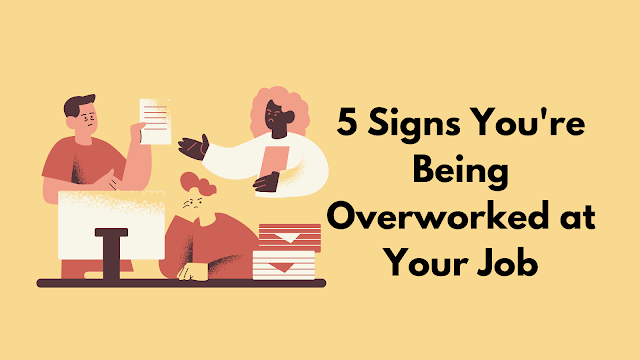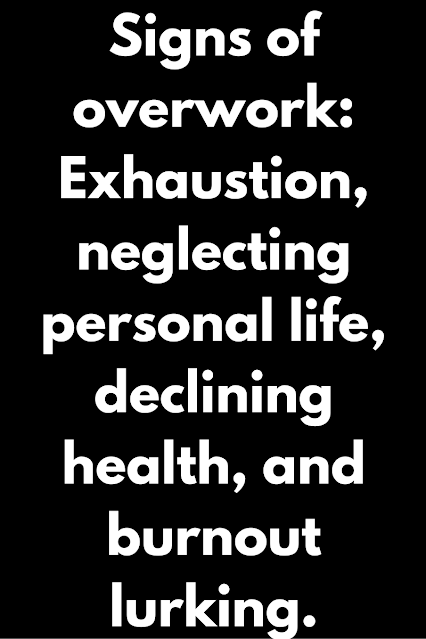Introduction Growth is rarely loud or obvious. Most people expect life upgrades to feel exciting, motivating, and energizing. They imagine clarity, confidence, and instant momentum. In reality, real growth often feels the opposite. It feels slow. It feels uncomfortable. Sometimes, it even feels lonely. If you’re in a phase where things feel slightly off—where your old life doesn’t fully fit, but the new one hasn’t arrived yet—you’re not broken. You’re not stuck. You’re evolving. Life upgrades don’t announce themselves. They arrive quietly, reshaping your inner world before your outer world catches up. The signs can be subtle, easy to misunderstand, and often mistaken for problems. Here are five powerful signs that suggest you’re not falling behind—you’re leveling up. 1. You Crave Solitude More Than Before One of the earliest signs of personal evolution is a growing desire for solitude. You may find yourself pu...
Introduction
In today's fast-paced and competitive work environment, it's not uncommon for employees to find themselves overwhelmed with tasks and responsibilities. While a certain level of workload is expected in any job, it's essential to recognize when you're being overworked. Being overworked affects your physical and mental well-being and can lead to a decline in your overall productivity. In this article, we'll explore five signs that may indicate you're being overworked at your job and discuss why it's crucial to address this issue.
5 Signs You're Being Overworked at Your Job
1. Constant Fatigue and ExhaustionConstant fatigue and exhaustion are the most apparent signs of being overworked. If you feel tired all the time, struggling to get out of bed in the morning, and constantly needing caffeine to stay awake during the day, it's a clear indicator that your workload is taking a toll on your energy levels.
Excessive work can result in burnout, characterized by persistent physical and emotional exhaustion. This can result in decreased job satisfaction, increased absenteeism, and even physical health problems like heart disease and high blood pressure. It's essential to prioritize self-care and maintain a healthy work-life balance to prevent burnout.
2. Decreased Productivity and Quality of Work
Another sign of being overworked is a noticeable decline in your productivity and the quality of your work. When you're stretched too thin, it becomes challenging to concentrate, make decisions, and solve problems effectively. You may find yourself making more mistakes, missing deadlines, and needing help to meet your usual standards of excellence.
Over time, this decline in performance can harm your professional reputation and career prospects. It's essential to communicate with your supervisor if you're consistently unable to meet your job's demands. They can help you prioritize tasks or provide additional support to lighten your workload.
3. Increased Levels of Stress and Anxiety
Stress is a typical response to a heavy workload, but it can have severe consequences on your physical and mental health when it becomes chronic. If you constantly feel anxious, irritable, or overwhelmed by work-related concerns, it's a sign that you may be overworked.
Prolonged exposure to high-stress levels can lead to serious health problems, including anxiety disorders, depression, and even heart disease. To address this, consider implementing stress management techniques such as mindfulness, meditation, exercise, and seeking professional help. Additionally, discussing your workload with your manager or HR department can help alleviate some of the stress.
4. Neglecting Personal Life and Relationships
When you're overworked, it's common to sacrifice your personal life and relationships to meet job demands. You might find yourself canceling plans with friends and family, missing important events, or needing more energy to engage in activities you once enjoyed.
Neglecting your personal life can lead to feelings of isolation and loneliness, exacerbating overwork's adverse effects. Maintaining a healthy work-life balance is crucial to setting boundaries and prioritizing your personal life. Remember that a balanced life contributes to your overall well-being and makes you more effective at work in the long run.
5. Lack of Time for Self-Care and Rest
Self-care is essential for maintaining physical and mental health, but overworking often leaves little time for it. If you don't have time to exercise, eat healthily, get enough sleep, or engage in hobbies and activities that bring you joy, it's a sign that your job is consuming too much of your time and energy.
Neglecting self-care can lead to a vicious cycle where your well-being deteriorates, making it even harder to cope with your workload. To break this cycle, make a conscious effort to prioritize self-care. Schedule regular breaks, take time off when needed, and engage in activities that help you relax and recharge.
Communicating openly with your supervisor or HR department about your workload and exploring potential solutions, such as delegating tasks, adjusting deadlines, or seeking additional resources, is essential. Remember that your health and well-being should always be a top priority, and taking steps to achieve a healthier work-life balance can lead to a more fulfilling and sustainable career.
Stress is a typical response to a heavy workload, but it can have severe consequences on your physical and mental health when it becomes chronic. If you constantly feel anxious, irritable, or overwhelmed by work-related concerns, it's a sign that you may be overworked.
Prolonged exposure to high-stress levels can lead to serious health problems, including anxiety disorders, depression, and even heart disease. To address this, consider implementing stress management techniques such as mindfulness, meditation, exercise, and seeking professional help. Additionally, discussing your workload with your manager or HR department can help alleviate some of the stress.
4. Neglecting Personal Life and Relationships
When you're overworked, it's common to sacrifice your personal life and relationships to meet job demands. You might find yourself canceling plans with friends and family, missing important events, or needing more energy to engage in activities you once enjoyed.
Neglecting your personal life can lead to feelings of isolation and loneliness, exacerbating overwork's adverse effects. Maintaining a healthy work-life balance is crucial to setting boundaries and prioritizing your personal life. Remember that a balanced life contributes to your overall well-being and makes you more effective at work in the long run.
5. Lack of Time for Self-Care and Rest
Self-care is essential for maintaining physical and mental health, but overworking often leaves little time for it. If you don't have time to exercise, eat healthily, get enough sleep, or engage in hobbies and activities that bring you joy, it's a sign that your job is consuming too much of your time and energy.
Neglecting self-care can lead to a vicious cycle where your well-being deteriorates, making it even harder to cope with your workload. To break this cycle, make a conscious effort to prioritize self-care. Schedule regular breaks, take time off when needed, and engage in activities that help you relax and recharge.
Conclusion
Recognizing the signs of being overworked is the first step in addressing this issue and taking control of your well-being. Constant fatigue, decreased productivity, increased stress, neglecting personal life and relationships, and a lack of time for self-care are all red flags that should not be ignored.Communicating openly with your supervisor or HR department about your workload and exploring potential solutions, such as delegating tasks, adjusting deadlines, or seeking additional resources, is essential. Remember that your health and well-being should always be a top priority, and taking steps to achieve a healthier work-life balance can lead to a more fulfilling and sustainable career.


Comments
Post a Comment
Please do not add any spam link in the comment box